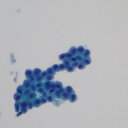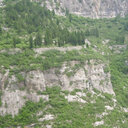Three types of gut bacteria collaborating to improve Kui Jie'an enema treat DSS-induced colitis in mice.
Từ khóa
trừu tượng
A rising amount of evidences show that gut microbiota is an important factor in mediating the growth of ulcerative colitis (UC), the major product of colon bacteria fermentation butyrate as mediator have effects on the mucosal immune system by expanding regulatory T cells (Treg) in the colon. Turkish galls, an insect gall parasitized on the tree branches of Quercus infectoria Oliv., exhibiting the promising prospect in treating the remedy of UC by regulating the bacteria, whereas its mechanism remains unclear. Here, this work found that three types of gut bacteria collaborating to improve DSS-induced UC in mice after Turkish galls intervention, including putative SCFAs-producing bacteria (PCPB), anti-inflammatory bacteria and harmful bacteria. The Helicobacter, Bilophila, Acinetobacter and Odoribacter, which belong to the harmful bacteria were dramatically increased in UC group, whereas the harmful bacteria were reduced after treatment with Turkish galls. The Allobaculum, Bacteriodes, Blautia, Butyricimonas, belonging to PCPB, were significantly increased after Turkish galls and butyrate intervention, and we also observed that the concentration of butyrate increased with the grows of PCPB. The Bifidobacterium, Lactococcus, which belong to the anti-inflammatory bacteria, were also significantly increased after Turkish galls intervention. Meanwhile, rectal administration of Turkish galls and butyrate could increase mucosa inflammation and diarrhea. The expression of cytokines in the colon was improved by butyrate and Turkish galls treatment group. The percentage of Treg out of CD4+ population was evaluated by flow cytometry after Turkish galls and butyrate intervention. The results suggested that Turkish galls alleviated UC by modulating three types of the gut microbiota, and butyrate may be used to relieve inflammatory. This study may help us to understand the mechanism of Turkish galls in treating UC from the perspective of intestinal flora and also offered a mechanism reference for UC treatment using an insect gall in rich of polyphenolic compounds.



